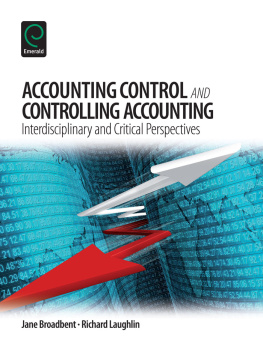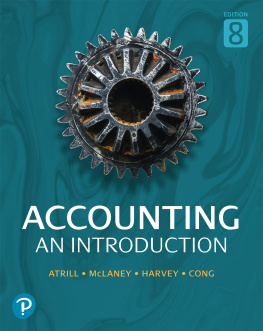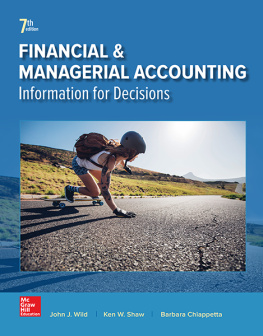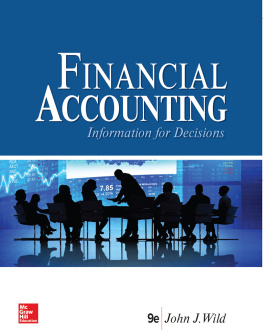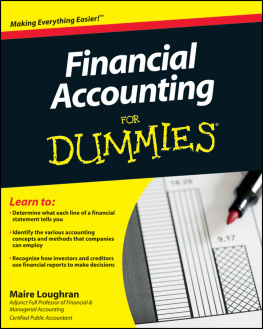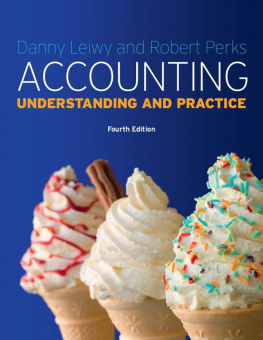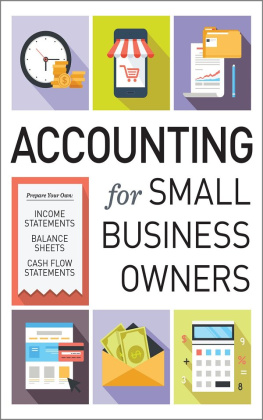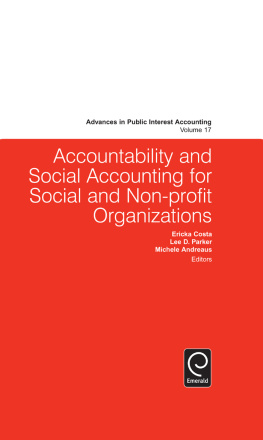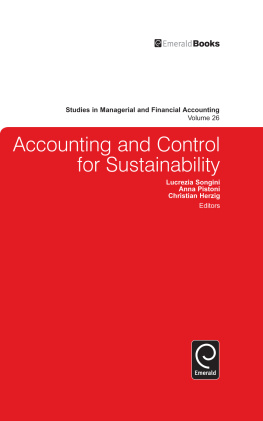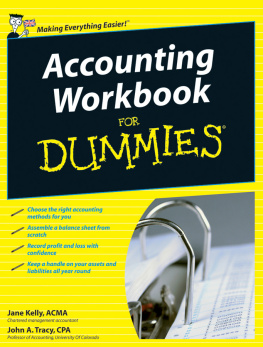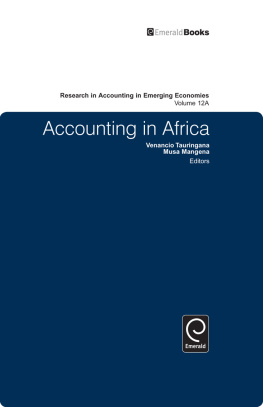ACCOUNTING CONTROL AND CONTROLLING ACCOUNTING: INTERDISCIPLINARY AND CRITICAL PERSPECTIVES
ACCOUNTING CONTROL AND CONTROLLING ACCOUNTING: INTERDISCIPLINARY AND CRITICAL PERSPECTIVES
BY
JANE BROADBENT
Royal Holloway, University of London;
University of Roehampton, London
RICHARD LAUGHLIN
Kings College London, University of London

United Kingdom North America Japan India Malaysia China
Emerald Group Publishing Limited
Howard House, Wagon Lane, Bingley BD16 1WA, UK
First edition 2013
Copyright 2013 Emerald Group Publishing Limited
Reprints and permission service
Contact: permissions@emeraldinsight.com
No part of this book may be reproduced, stored in a retrieval system, transmitted in any form or by any means electronic, mechanical, photocopying, recording or otherwise without either the prior written permission of the publisher or a licence permitting restricted copying issued in the UK by The Copyright Licensing Agency and in the USA by The Copyright Clearance Center. Any opinions expressed in the chapters are those of the authors. Whilst Emerald makes every effort to ensure the quality and accuracy of its content, Emerald makes no representation implied or otherwise, as to the chapters suitability and application and disclaims any warranties, express or implied, to their use.
British Library Cataloguing in Publication Data
A catalogue record for this book is available from the British Library
ISBN: 978-1-78190-762-7


To our respective granddaughters:
Anna and Sophie; Connie and Florence.
Contents
Preface
This book seeks to bring together the insights of a joint research endeavour that has spanned a number of projects undertaken over at least 25 years. In writing this book we wish to synthesise and explain our analysis and to add to the incremental insights provided by our various papers using the opportunity created by having more space to develop synergies between those increments in understanding, critique and prescriptions.
Professor Tony Lowe, the Professor of Accounting at the University of Sheffield where we both started our academic careers, made the comment that you should only write books when you are retired and have something to say. It is of course very possible to have something to say before being retired; equally it may be that even on retirement there may be nothing worth saying. However, retirement gives space and some freedom to be more reflective and less reactive to institutional pressures and requirements. As we have now both retired as full-time academics and are working part time with a portfolio of different interests it seemed the right time to look at whether we could consolidate and refine the work we have undertaken over the years.
Books have become unfashionable in the context of the assessments of research that are undertaken in the United Kingdom. Despite the fact that the guidance on the assessment processes makes it clear that books are welcomed as outputs for assessment colleagues in Business and Management tend to have eschewed this form of communication. It is ironic then that the impetus for writing this book came from Richards colleague Professor Christian Heath at Kings College London. Christian had the job of reading our joint work which had been submitted for consideration at Kings for the 2008 Research Assessment Exercise and he suggested that a book bringing the work together would be a good idea. We wish to acknowledge that suggestion and that we are grateful for this advice and the work presented here is the evidence we have taken it.
It is perhaps worth recounting something of the processes that constituted this piece of joint work. Whilst there is currently something of a re-appraisal of the lone scholar model particularly in relation to whether lone scholars can undertake significant grant funded research in the social sciences promotion and appointment panels will often like to see that a candidate has produced single authored work. Questions are often asked about the contribution of different authors to pieces of joint work as if this division was possible to specify. We wish to argue that our joint work is genuinely joint and that we have both contributed 100% to the final outcome. This is because it is the result of processes of discourse to which we both contribute. The final outcome would be different if we were not both involved.
Nevertheless, the practicalities of writing need to be undertaken and these might differ from project to project. Richard retired in September 2010 and Jane in March 2012. We therefore decided that in this case Richard would have the job of undertaking the first draft of the book and Jane the second. Friends will be aware of Janes target expectation that Richard should write 1500 words each day. Jesse Dillard was wont to Skype Richard at about 5 pm in the afternoon to ask how the word count was going as she will be on her way home soon and that you need to have a good excuse for any under-performance! Like all well meaning but ultimately undoable targets there was need for plenty of good excuses, particularly when test cricket from any part of the world was on the television. However, a full first draft was eventually completed. It was probably Chapter 1 that caused the most trauma. The first draft of Chapter 1 was completed on time and hard copy was duly delivered to Jane for review as she set off on a 10-day trip to Singapore and Malaysia. The email Richard received a few days later started with the words, You will not like this but I thought I should give you chance to think about these things. As predicted Richard didnt like what he read, but after some extensive and heated discussion, when Jane got home, and consequent re-writing, the contents of Chapter 1, which sets up the structure, logic and content of the book was finally agreed.
We had various other points of vigorous discussion on the route but the book was finally finished in December 2012 in the warmth of Adelaide. It was presented in a seminar to the colleagues who were kind enough to host us as visiting scholars to the Centre for Accounting, Governance and Sustainability (CAGS) in the School of Commerce, at the University of South Australia. We are grateful to CAGS and the School for funding us as visitors and allowing us space, in-between extensive discussions with scholars about their research, to finalise what has been a long journey.
The question of how to write a book that would make a lasting contribution was one we discussed at length. We wanted to contextualise our work. There are two aspects to that context.
The first is what we might see as the intellectual context. What is important here is the extent to which accounting as a discipline emerged from the strictures and limitations of economic thought and emerged as a broader social science. This enabled accounting researchers to ask different questions and make different and important contributions to organisations and society. We believe that the intellectual environment in the late 1970s and early 1980s was significant in enabling the interdisciplinary and critical research approach we have adopted to emerge. We have, therefore, taken the opportunity to provide some personal reflections on the history and development of the Interdisciplinary and Critical Perspectives in Accounting (ICPA) movement or Project, as we refer to it in the book, in Chapter 2. However, writing this chapter reminded us of how much more needs to be analysed and documented about this development.

